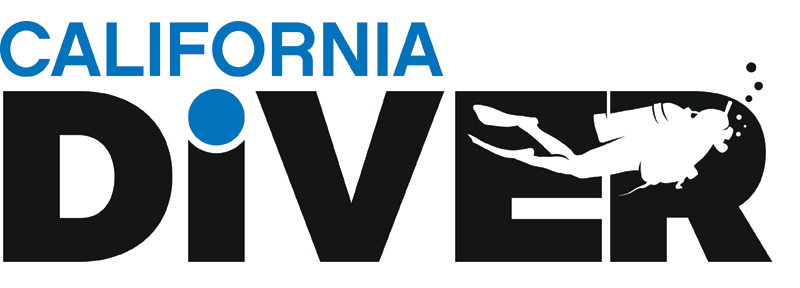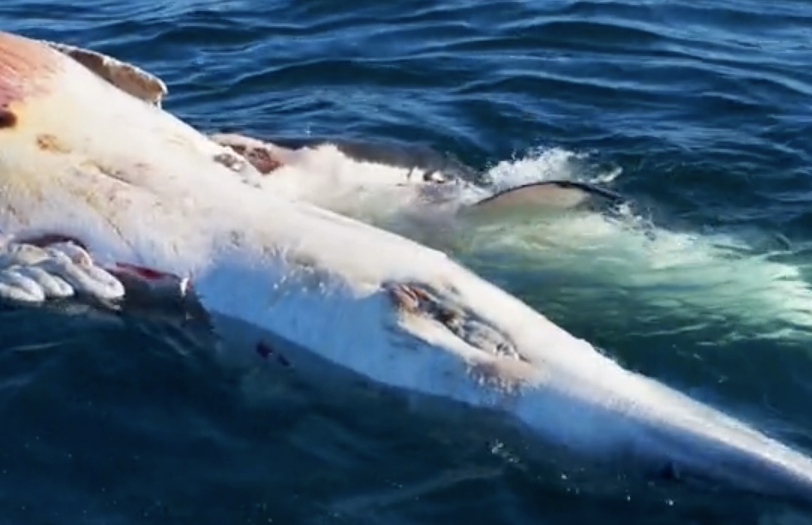In the decade I have been diving, I have always had a special place in my heart for the Californian waters. Every trip to an exotic locale only seems to reinvigorate my passion for local diving. As my diving education, abilities and underwater video skills develop; I continually find new reasons for loving the home waters. My entire family dives but here at home, my brother Trevor and I, are a team: diving, learning, filming and experiencing the environment together. It’s here in California that we repeatedly have some of the best diving and on-water experiences; I guess that’s why this magazine exists – for us few, whether residents or visitors, who call California waters home.
Story and video by Peter and Trevor Fulks, Partial Pressure Productions
For the last three years, Trevor and I have found a new calling here at home: giving back to our oceans. The ability to use our advanced diving skills, underwater video equipment and mechanical inclinations for a purpose has added to our passion for local diving. We discovered this passion while working with Ocean Defenders Alliance to remove manmade debris (aka ghost gear) from the sea. A recent article written by Mike Bear for this magazine enumerated our current mission: Operation Deep Sweep – removing debris from the Channel Islands National Park and National Marine Sanctuary. During the last month of this project, we have had the most impressive experiences of our lifetime underwater.
Within the last four weeks alone, we have spent many hours underwater DPVing with sea lions, being hugged by harbor seals, navigating beautiful kelp rooms, being stalked by Giant Black Sea Bass and of course, removing ghost traps. After years of “zero viz” net and trap removal operations, it has been an unforgettable experience to be in the clear waters of the islands surrounded by such beauty. Because our role in this project (in addition to removing traps) is video documentation, we have been loaded down with cameras and gear, shooting every angle available. I promise, this article is getting somewhere…
Last week, while on a return sail from Santa Cruz Island, we happened across a few boats gathered together midway between the Anacapa Island and Ventura. As we approached upwind from the gathering, the boats parted ways and revealed the large white underbelly of a dead whale. Our hearts jumped, dead whales – though sad in themselves – mean sharks. These unique scavenging events are rare.
The scramble was on.
Trevor: “Get the Go Pro pole cam!”
Me: “Crap…the battery is dead.”
Trevor: “You’re Kidding?! What about the spare battery?”
Me: “Dead…”
Similar dialogue happened for two more cameras we had aboard the Clearwater. After a full day of shooting already, the gear was nearly tapped out. Our dream moment of documenting whatever was going to be eating that whale was quickly fading. The panic was comical in hindsight, but felt so real at the time. We needed to document this.
These events – so rare in occurrence, even more so in observation – can sometimes be short lived. Nothing is predictable in the open ocean. Based on the boats we saw, it looked like we were the only ones who had potential to get some underwater video.
The wind shifted as the other boats parted ways; Capt. Kurt Lieber positioned the Clearwater within arm’s reach of the rotting carcass. Half eaten, with eviscerated and purple bloated intestine floating from abnormally large bite marks in the belly, the distinct smell of decomposition was in the air. Finally holding a Mirrorless SLR camera we forgot was in the cabin in our initial haste, I was poised for the action. After some quick brainstorming, Trevor rigged our Light and Motion housing with a rope and gaff to document the underwater events.
A holler of voices came as a very large dorsal fin broke the surface of the water near the boat. Record buttons on…cameras trained…nostrils burning.
A few tense moments went by with nothing. Then, again, a roar of voices as the most beautiful creature I have ever seen broke the surface of the water – and with a dominance and grace that only the king of ocean possesses, the feeding began. I have seen frenzy before; this was different, methodical and surgical in selection from the corpse.
Quickly the question arose, should we get in? No. We chose better this time. A lack of knowledge in shark behavior and an analogy of petting a Grizzly who is eating Salmon in a river bounced around in my brain.
This time, we stay dry.
With each bite, the intact flesh released red oxygenated blood, revealing a more recent death than initially believed. The ocean lapping on the decomposing flesh, blubber undulating with the waves, mammalian body oils slicking the surface, and a smell of the newly exposed raw flesh alternating with the decomposed tissue created an intense sensory experience. I can’t begin to imagine the sensory overload that shark must feel and the relief of a meal without a chase.
After 90 minutes, SD cards were full, batteries were dead, faces wind chapped and sunburned. It was time to say farewell to the most memorable experience on the water in my life.
Maybe another experience will top this one – and I will never stop seeking it – but for now, a deep part of me is satisfied. On our way back to the harbor, Trevor and I took a seat on the bow to reflect. 13 years in the water, numerous dives and hours logged, memorable trips, missed trips due to life, injury, finances, sickness, and weather; we looked at each other. On a level that only people that share life defining moments can understand, were both thinking the same thing: We earned that.
BIO:
Peter and Trevor Fulks are brothers with a passion for the underwater world and always in search for the next great dive. They operate together as Partial Pressure Productions, which does underwater, topside, and close range aerial videography. Trevor works in gas pipeline construction in the Central Valley and Peter is a Police Officer in Southern California. They have been diving in Southern California and abroad for 13 years.
www.partialpressureproductions.com

